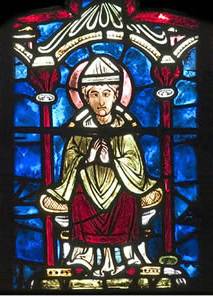
 N THE DOGMATIC CONSTITUTION on the Church Lumen Gentium of the Second Vatican Council, there are two paragraphs we might profitably revisit in light of Pope Benedict XVI’s motu proprio Summorum Pontificum and the ensuing difficulties many laity have faced as they work to see it widely and generously implemented.
N THE DOGMATIC CONSTITUTION on the Church Lumen Gentium of the Second Vatican Council, there are two paragraphs we might profitably revisit in light of Pope Benedict XVI’s motu proprio Summorum Pontificum and the ensuing difficulties many laity have faced as they work to see it widely and generously implemented.
First, there is the question of the duty of bishops. Lumen Gentium 23 reads:
For it is the duty of all bishops to promote and to safeguard the unity of faith and the discipline common to the whole Church, to instruct the faithful to love for the whole mystical body of Christ, especially for its poor and sorrowing members and for those who are suffering persecution for justice’s sake (cf. Mt 5:10), and finally to promote every activity that is of interest to the whole Church, especially that the faith may take increase and the light of full truth appear to all men. (emphases added)
As Summorum Pontificum and its later clarification Universae Ecclesiae explain, the canonical discipline of the Catholic Church recognizes the traditional Latin Mass as never abrogated, equal in legal status to the Ordinary Form, permissible everywhere to any priest who is capable of celebrating it—and a treasure to be made available to the laity, whether they request it or not, but obviously and especially if they do request it. This is “the discipline common to the whole Church,” whether an individual bishop may like it or not, and it is his duty to promote and to safeguard the law established in the motu proprio. Moreover, as these and other documents indicate, the movement to recover the more ancient liturgical use of the Roman Rite as part of our Catholic life today is precisely “an activity that is of interest to the whole Church,” as being ordered to effecting a reconciliation at the very heart of the Church. The bishop therefore has a duty to promote this activity, and he may not ignore, downplay, undermine, or feebly attend to it.

The complement to this teaching is given in Lumen Gentium 37, which speaks about the goods that the laity have the right to receive from their shepherds, and how they should handle situations where their rights or legitimate needs are not being met:
The laity have the right, as do all Christians, to receive in abundance from their spiritual shepherds the spiritual goods of the Church, especially the assistance of the word of God and of the sacraments. They should openly reveal to them their needs and desires with that freedom and confidence which is fitting for children of God and brothers in Christ. By reason of the knowledge, competence, or outstanding ability in which they may be strong, they have the ability, and at times even the obligation, to express their opinion on those things which concern the good of the Church.
Notice the strong language here: the laity have the right to receive in abundance the Church’s spiritual goods, especially the assistance of the word of God and of the sacraments. When we take this together with the legislation in Summorum Pontificum that permits not only the more ancient form of the Holy Sacrifice of the Mass but also the traditional rites of many of the sacraments, we can see that the laity may justly claim from their shepherds the provision of that abundant assistance. To this is added the freedom and the obligation, in accordance with the dignity of the baptized Christian, of making known one’s “needs and desires” and one’s “opinion on those things which concern the good of the Church.”
Let us make no mistake about it: duties and rights are correlative. The faithful have a right to receive abundant spiritual nourishment, particularly in the form of the Mass and the sacraments, and both St. John Paul II and Pope Benedict XVI clarified repeatedly that this right extends to the nourishment that many Catholics receive from the usus antiquior of the Mass and other traditional sacramental rites. For their part, the bishops have a duty to uphold universal ecclesiastical discipline (which includes Summorum Pontificum and Universae Ecclesiae) and to provide generously for the spiritual health of their flocks by meeting their needs fair and square. And how is a bishop to know which needs are legitimate and which are fraudulent? By paying heed to the voice of the teaching Church.
It all comes back to the motu proprio: are we willing or unwilling to embrace it?

Please visit THIS PAGE to learn more about Dr. Kwasniewski’s Sacred Choral Works and the audio CDs that contain recordings of the pieces.
